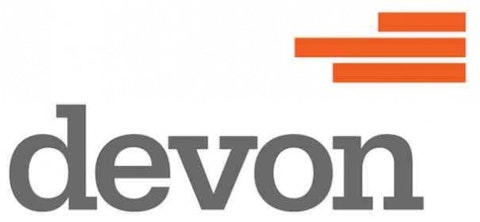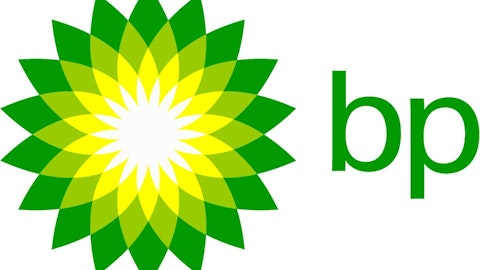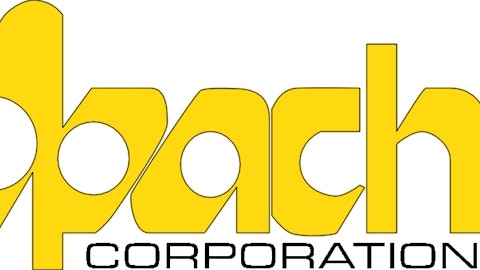We’ve fought numerous wars and spent countless billions protecting our interests in oil coming out of the Middle East. We’ve also spilled a lot of ink and let out too much hot air on the need to become energy independent. We’re well aware of the fact that securing our energy future is one of the most critically important undertakings of our modern economy.
As luck or fate would have it, we discovered that beneath our very soil are the resources we’ve deemed so vital to protect. Of course, those resources aren’t easy to produce; the cost is high both in terms of dollars and the environment. However, it’s a price we need to pay if for no other reason than that we’ve already paid such a high price to get where we are today.

Our neighbors to the north have apparently already had enough. After approving the $15 billion sale of Nexen to China’s CNOOC Limited (ADR) (NYSE:CEO), and Progress Energy’s $6 billion sale to Malaysian owned Petronas, Canadian Prime Minister Stephen Harper has now promised to approve deals like this only under exceptional circumstances. The question is, what is deemed to be an exceptional circumstance when Canadian law already states that a foreign investment must be a “net benefit” to Canada. There are no easy answers, here but that doesn’t mean we shouldn’t at least ponder the ramifications.
A cash infusion into the sagging oil sands could be deemed very beneficial if it leads to an increase in production. That could mean lower prices at the pump which could yield greater economic outputs. On the other side of the issue is the concern that jobs will be lost and, along with them, tax revenue. That’s just the economic ramification, which is only one of the many aspects that need to be considered.
Now, let’s translate this discussion into the one that’s sure to take place at some point here in the U.S. At this point, national oil companies haven’t made headlines with multibillion dollar purchases of U.S. oil and gas companies. Instead, the deals have been similar to the structure of the joint ventures’ Devon Energy Corp (NYSE:DVN) signed with Sinopec and Sumitomo. In the $2.5 billion Sinopec deal, Devon exchanged a 33% interest in 1.5 million acres across five emerging shale plays. The deal came with a $900 million cash infusion and a $1.6 billion drilling carry while the Sumitomo deal, while smaller, was very similar in structure. Devon Energy Corp (NYSE:DVN) sees these deals improving capital efficiency, mitigating exploration risk and preserving cash flow for future development.
Because we have no real energy policy, our domestic production is at the mercy of three overriding political themes: national security, foreign policy, and economic policy. As you might imagine, these don’t line up perfectly. Instead, we have harmony were there’s overlap but controversy where one political theme is driving the discussion.
Right now economics are front and center and, in all likelihood, foreign ownership of our natural resources isn’t going to matter, until it does. For example, we don’t think twice about allowing BP plc (ADR) (NYSE:BP) to own and operate U.S. oil and gas assets as most of us likely don’t even realize that BP is headquartered in London. No one cared that BP operated in the Gulf of Mexico until one of its wells sprung a leak, and then no one wanted to buy gas from a BP-branded gas station. It was at that point that we worried whether we’d be made whole as other interests triumphed over simple economics.
Lucky for us, BP isn’t a national oil company and it went out of its way to clean up the Gulf and make things right. However, what would happen if this was a national oil company with a country that had a conflict with our foreign policy? Would we have had similar resolutions to the U.S. Department of Justice’s settlements with BP and the Swiss-domiciled Transocean LTD (NYSE:RIG) which owned the rig that caused the oil spill? BP paid $4.5 billion to the U.S. government including a $1.26 billion criminal fine while Transocean LTD (NYSE:RIG)’s settlement included $1.4 billion in fines, penalties and recoveries. While those settlements will hopefully make other producers think twice about cutting corners, it might not have the same effect on a national oil company.
Like I said earlier, no one will care, until they have reason to care. Right now these deals are good for our economic interests as they provide capital that’s currently not there given the lower returns producers are seeing. Until something conflicts with national security or our foreign policy these deals are unlikely to stop as so many drillers are starving for capital.
That’s why I think we need to have this discussion before it becomes an issue. Should we draw the same line in the sand that Canada has apparently drawn? Should we take all the money we can get as long as it makes good business sense? We’ve endured such a great cost over the years not to take this issue a bit more serious.
The article Are These Asset Sales Jeopardizing Our Energy Independence? originally appeared on Fool.com and is written by Matt DiLallo.
Fool contributor Matt DiLallo has no position in any stocks mentioned. The Motley Fool owns shares of Devon Energy and Transocean and has the following options: Long Jan 2014 $20 Calls on Chesapeake Energy, Long Jan 2014 $30 Calls on Chesapeake Energy, and Short Jan 2014 $15 Puts on Chesapeake Energy.
Copyright © 1995 – 2013 The Motley Fool, LLC. All rights reserved. The Motley Fool has a disclosure policy.




